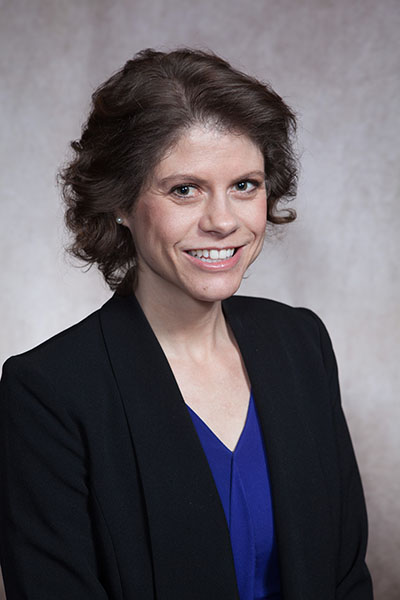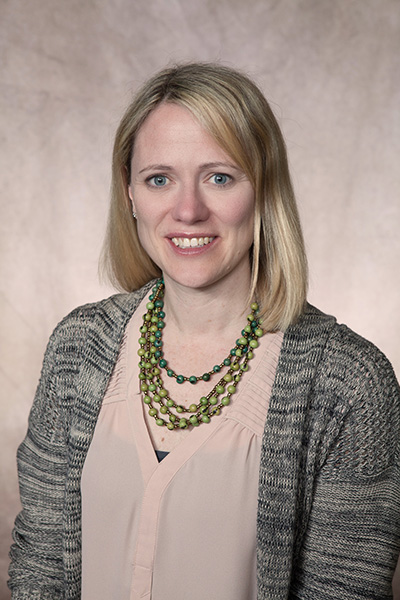- Apply
- Visit
- Request Info
- Give
Eastern launches wellness series for faculty, staff
Written by Dwight Bachman
Published on March 21, 2022

A recent report from researchers at the market research company One Poll indicates that nearly three out of four Americans felt that 2020 was the most stressful year of their lives. While 38 percent of respondents mentioned a lack of savings, top stressors also included the November 2021 election and the COVID-19 pandemic.
Like universities and colleges across the nation, Eastern Connecticut State University is working to help students, faculty and staff deal with the many stresses the pandemic has produced. On March 2, the Provost’s Office and Office of Human Resources collaborated to present “Recapturing Balance During Turbulent Times,” the first in a four-part wellness series. The series is designed to help faculty and staff learn new ways to handle the tensions caused by COVID and to create their own self-care plan of action to cope with stress and bring balance back into their lives.

“Faculty and staff are on the front lines of the nation’s student mental health crisis resulting from the pandemic and they have gone to great lengths to support our students during this difficult time; all while managing upheaval in their own lives,” said Jennifer Brown, associate provost and professor of economics. “Based on the results of the Faculty Satisfaction and Engagement Survey conducted earlier in the semester, Academic Affairs worked with Human Resources to host the Faculty and Staff Wellness Series.”
“With changes wrought by the COVID-19 pandemic, as well as increasingly stressful worldwide events, people have experienced intensifying isolation, loneliness or anxiety,” said Maria Weinberger, associate vice president of employee and labor relations. “Eastern recognizes these circumstances have had an impact not only on its students, but also on faculty and staff, and believed its employees would benefit from additional support in these areas. This wellness series focuses on supplying practical information and functional tools designed to empower employees to address the cumulative impact of stressors, build resiliency and improve their overall health at work and in their personal lives.”
Carolyn Singer, an educator and training facilitator for more than 20 years and consultant for Solutions, Eastern’s employee assistance program provider, conducted the webinar. She encouraged the audience to learn the difference between “bad stresses” and “good stresses.”
Bad stresses, she said, are the subjective internal stresses that may be impacted by external forces, such as one’s own beliefs and attitudes, negative self-talk and low self-esteem — stress that can be destructive and leave one burned out.
“Good stresses are inspiring, life-giving mental alternatives, such as controlled breathing and developing resilience, courage and being optimistic about new challenges,” said Singer. “Being optimistic will restore your faith in self and make you stronger. You will rise instead of fall, and if you fall, you will rise. Believe in yourself. Bring balance into your life. Take control of your response to negative behaviors.”
“The pandemic has been largely unpredictable and uncontrollable, and it has significantly altered our daily lives and the way we all interact with students,” said Psychology Professor Kristalyn Salters-Pedneault. “It has forced me to re-think why I teach the way I do, and that’s made me a more effective instructor. For example, I’ve made my courses more accessible using new technology, and students have commented that having multiple ways to engage with the material has helped their learning. The pandemic has played out in the context of many other sociocultural stressors. It’s important to acknowledge how hard this has been, and that lots of people on campus, students, faculty and staff are in the process of grieving and adapting.”

“I have used the pandemic as a reminder of how important it is to tailor our advising approach to each unique student,” said Jessica Ruddy, associate director in the Academic Success Center. “So much of the student experience has been impacted by COVID-19 and we must be mindful of the challenges that students are facing so that we can play an active role in removing barriers to their success. As an advisor, this means being accessible and available to meet with students in a variety of ways — in-person, virtually, or over the phone — as well as making sure that students have the academic skills they need to be a successful at Eastern.”
Ruddy said she believes Eastern has faced COVID-19 with resiliency and adaptability. “While strengthening us, facing constant change for two years is exhausting! I think students, faculty and staff have had to focus on prioritizing responsibilities and taking time for self-care to navigate the challenges of our present time.”
During her webinar, Singer strongly advocated faculty and staff create a self-care plan as a strategy for managing stress. The plan included paying attention to your physical health (sleep, stretching, walking, exercise, healthy food, yoga and rest); emotional health (forgiveness, compassion, kindness and emotional maturity); social health (support systems, communication, time together, asking for help and boundaries); spiritual health and professional growth.
“You need to practice these things routinely to bring balance to your life and reduce your stress,” said Singer. “The benefits result in greater focus and concentration, higher levels of job satisfaction, time to pursue education goals, hobbies or leisure activities and opportunities to enjoy quality time with family.”
COVID-19 has interrupted the way we deal with our children, the elderly, employment, finances, illnesses, loss of life, and especially, the way faculty and staff interact with students. In response, Brown said Eastern is creating a robust set of resources to support the mental and physical health of students, faculty and staff. “The hope is to build a comprehensive set of resources that is meaningful, sustainable and has a positive impact on the sense of connection faculty and staff have with their Eastern family.”
While the webinar on March 2 was held live, it was recorded and is available to all faculty and staff. The wellness series continues with Compassion Fatigue (March 23 at 3 p.m.); Change Management (April 6 at 3 p.m.); Relaxation Techniques (April 20 at 3 p.m.): and You Don’t Have to Leave Work Exhausted (May 4 at 3 p.m.). The Provost’s Office will be notifying employees of details on how to access each session.


